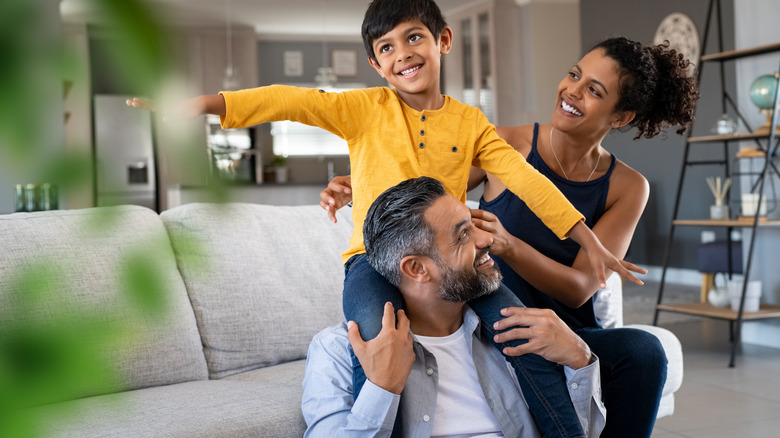Have you ever woken up in the middle of the night to find your partner muttering nonsense in their sleep? Or had them tell you in the morning that you carried on a conversation mid-snooze? Sleep talking is a disorder called somniloquy, according to Psychology Today. It’s defined as talking while unconscious. If you talk in your sleep, you could be mumbling and talking nonsense, talking in complete sentences, or anything in between. If you share a room with someone who talks in their sleep, they might trigger you to talk in your sleep, too. So you could be having conversations in your sleep, although those conversations might not make sense, and your voice could sound completely different than when you talk when you are conscious. WebMD notes that most sleep talking lasts about 30 seconds at a time, and it could be as low as a whisper or as loud as screaming. Sleep talking in adults over 25 is often accompanied by a mental or physical illness. Severe forms of sleep talking can come with nighttime seizures.
What causes sleep talking

Sleep talking can run in families and affect anyone, but it’s most common in kids and males according to Psychology Today. If you have parasomnia — another sleep disorder, also known as night terrors — you’re also more likely to talk in your sleep. Episodes of sleep talking can be triggered by stress, anxiety, depression, lack of sleep, and drug and alcohol use.
Sleep talking could also be a symptom of a more severe condition or health problem. Per WebMD, it can co-occur with sleepwalking, night terrors, REM sleep behavior disorder (RBD), or nocturnal sleep-related eating disorder (sleep eating). Other causes include certain medications, substance abuse, fever, stress, and mental illnesses. The Cleveland Clinic adds that obstructive sleep apnea and post-traumatic stress disorder (PTSD) may also be associated with sleep talking. While sleep talking is usually harmless, there are times when you should see your doctor about it.
When to see a doctor about sleep talking

Sleep talking by itself isn’t usually a cause for concern, but it could signify something more serious. According to Cleveland Clinic, you should see your doctor if you are experiencing intense fear, violent actions, or screaming along with sleep talking. Medical News Today notes that when sleep talking is associated with other nighttime activities like sleepwalking or teeth grinding, it might be a sign that you have an underlying health condition like obstructive sleep apnea and is worth bringing up with your medical team. You should also see your doctor if the sleep talking is affecting your sleep quality (or that of your partner).
There are also some things you can do to reduce your sleep talking. Practice good sleep hygiene by avoiding or limiting caffeine, alcohol, and tech devices close to bedtime. Having a consistent sleep routine can also help (per Healthline). And if the sleep talking seems generally harmless but is disruptive to your partner, Healthline recommends sleeping in separate rooms or beds if you or your partner’s sleep is being affected. Your partner could also wear earplugs while sleeping, or run a white noise machine.



